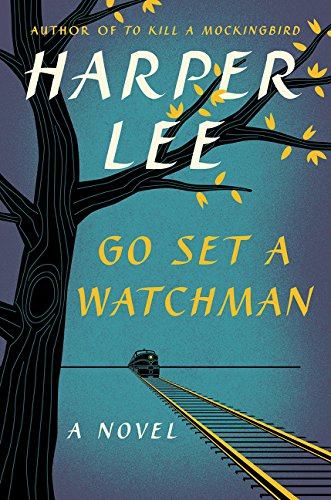I’m a little behind on this review, as Go Set a Watchman was published in July, and I read it several weeks ago. My hesitation in writing the review for Harper Lee’s novel is primarily the controversy that surrounds it - our beloved Atticus Finch as a racist, and the questionable circumstances as to how this piece of literature came to publication. Another reason for the delay is that, well, I’m not sure how I really feel about it. Perhaps finally putting “pen to paper” will help me whittle that out.
I’ll begin with the storm around the publication of Go Set a Watchman. Lee has been fortunate enough to have her loving sister as her protector during illness, but her sister passed away recently. Lee has famously displayed chagrin about the state of American literature, "I think the thing that I most deplore about American writing … is a lack of craftsmanship. It comes right down to this — the lack of absolute love for language, the lack of sitting down and working a good idea into a gem of an idea.” In essence, Lee was no longer going to participate in the literature scene, thus publishing only one book, her masterpiece, To Kill a Mockingbird. If you’re interested in a rather scathing commentary, take a look at Joe Nocera’s opinion in the New York Times who is palpably angry about it, and makes a convincing argument that we should be too.
The second bit of noise around the novel is the conversion, or realization, of Atticus as a blatant racist. This is what I had read in reviews and heard in comments prior to reading the book. My expectation is that Atticus had turned dramatically and hard; however, this isn’t quite accurate. If you’ve read it, I won’t presume you agree with my assessment, but I’ll elaborate.
The story takes place years after To Kill a Mockingbird, when the South is in transition - desegregation of schools and public institutions and equal rights are being mandated by the Government. Well, in small-town Maycomb, Alabama, where Watchman takes place, (cue southern accent) the Government simply does not understand the reality of life in the South. Professional white men are united in fearing for competition with black men for jobs, and white families are concerned that a desegregated school will lower the education level of their children to meet the low level of intelligence of the negro child.
Clearly this is wrong. However, in the rural South during that time, people were born and raised with a slave mentality, and making that transition was never going to happen overnight. The forces of good and evil were at work and Atticus Finch was caught in the middle of his beliefs and society. Were they the same? Not sure. Lee does not delve into the mind of Atticus. We know only Scout’s naive, yet wholesome perception of her community and her father.
As for the merit of the writing and likability of the book itself, I did enjoy falling into the rhythm of the southern cadence of speech and seeing what becomes of Scout, now known by her given name, Jean Louise. Jean Louise at 26, is living in New York and home for a visit when the story takes place. There is no specific plot to speak of - it’s simply Jean Louise’s shocking realization that her father isn’t the same moral hero that defended Tom Robinson and treated Calpurnia with as much respect as any white woman. Jean Louise experienced a special and educated youth, without a prejudiced bone in her body. We follow her tantrums, rants, and slow acceptance of the altered perception of her childhood.
After all the chatter, I’m glad to have read another Harper Lee novel. Did I love it? No. I do wonder if she’d be happy now it’s in the public domain.
Published: 2015
Publisher: HarperCollins
Vickie’s rating: 3 stars
